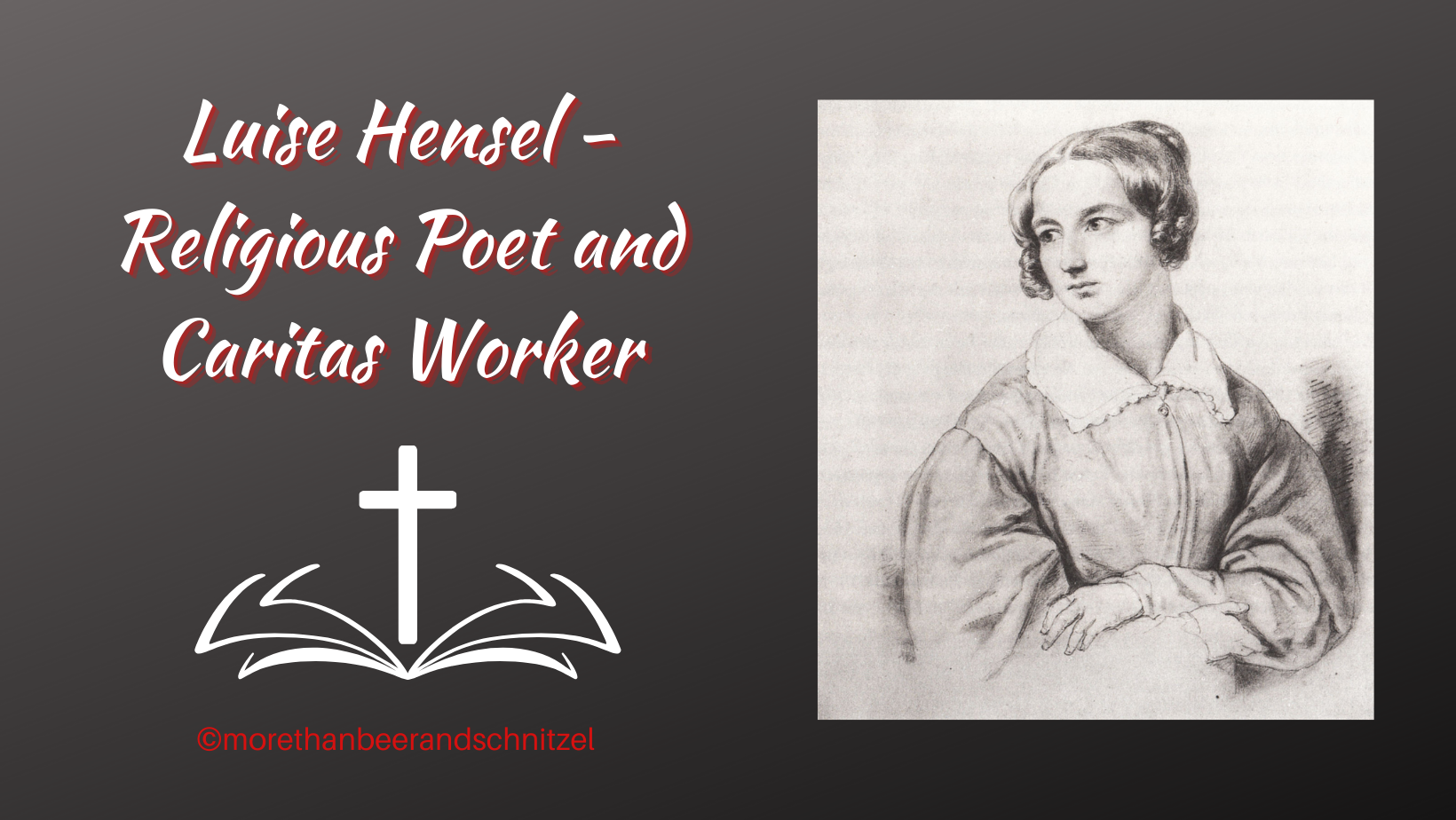Whether you pray at night, are religious or not, this evening prayer is known to most Germans. It seems that this poem has been around forever and is part of our folklore. But this nighttime prayer was written by Luise Hensel when she was just 18 years old.
Luise Hensel
Hensel was born on March 30th, 1798 near Berlin to a Lutheran pastor and his wife. When her father died in 1809 the family moved to Berlin which was occupied by the French at the time. While Hensel went to school for some time she had to leave early; for one because she was a girl and two she had to help her family financially.
Her older brother Wilhelm Hensel who later married Fanny Mendelssohn (sister of composer Felix Mendelssohn) was a painter and was able to support the family with his art. He was also the one who introduced Luise into artistic circles where she met poet Wilhelm Müller, composer Ludwig Berger, and later writer Clemens Brentano who became a lifelong friend.


Müller and Brentano had romantic feelings for Hensel that she didn’t requite. She did sent Brentano her poetry by which he was deeply moved. Some of her poetry was also published under his name or the pseudonym “Ludwiga”. Wilhelm Müller poured his feelings into the cycle of songs “Die schöne Müllerin” and “Winterreise“. Both cycles were set to music by Franz Schubert.
In 1818, the Lutheran Hensel converted to Catholicism and in 1820 took the vow of celibacy. She wrote most of her devout and pious poetry in the time from 1815-1820. From 1819 forward, when she left Berlin, Hensel worked as a companion to noble women, as a tutor, and as a teacher. The charitable work she did throughout her life, as well as raising her nephew after his mother died, was the most important work to her as a pious Catholic woman.
She lived in various places with friends, her brother, and in the end with a former student. On December 18th, 1876 she died in Paderborn.
Night Prayer: Müde bin ich, geh zur Ruh
The poem “Müde bin ich, geh zur Ruh” is titled “Nachtgebet” (night prayer) or “Abendlied” (evening song) and was written by Hensel when she was still a teenager and struggled with her religious beliefs and faith. She grew up in a Lutheran household but converted to Catholicism when she was 20. Her faith and devoutness played a central part in her life and in her poetry.
During her teenage years, Hensel was influenced by Romanticism and inspired by works like “Des Knaben Wunderhorn“, a collection of folk songs published by Clemens Brentano and Achim von Arnim. Therefore, her poetry often sounds naive and childlike but it was intended for children. Nowadays the poem is often said by children and the song is considered a lullaby.

Nachtgebet
1. Müde bin ich, geh zur Ruh,
schließe meine Augen zu.
Vater, lass die Augen dein
über meinem Bette sein.
2. Hab ich Unrecht heut getan,
sieh es, lieber Gott, nicht an.
Deine Gnad und Jesu Blut
machen allen Schaden gut.
3. Alle, die mir sind verwandt,
Gott, lass ruhn in deiner Hand;
alle Menschen, groß und klein,
sollen dir befohlen sein.
4. Müden Herzen sende Ruh,
nasse Augen schließe zu.
Lass den Mond am Himmel stehn
und die stille Welt besehn.
The poem or song asks God to watch over the speaker, to forgive their sins, to take care of their relatives and all people big and small, to give rest to tired, and help the sad sleep.
Here is one version of the poem set to music.
Sources and Resources
Poetry in Music, Writing, and Wall Art
Please note that the links below are affiliate links and I will earn a small commission if you purchase through those links. There are no additional costs to you.


